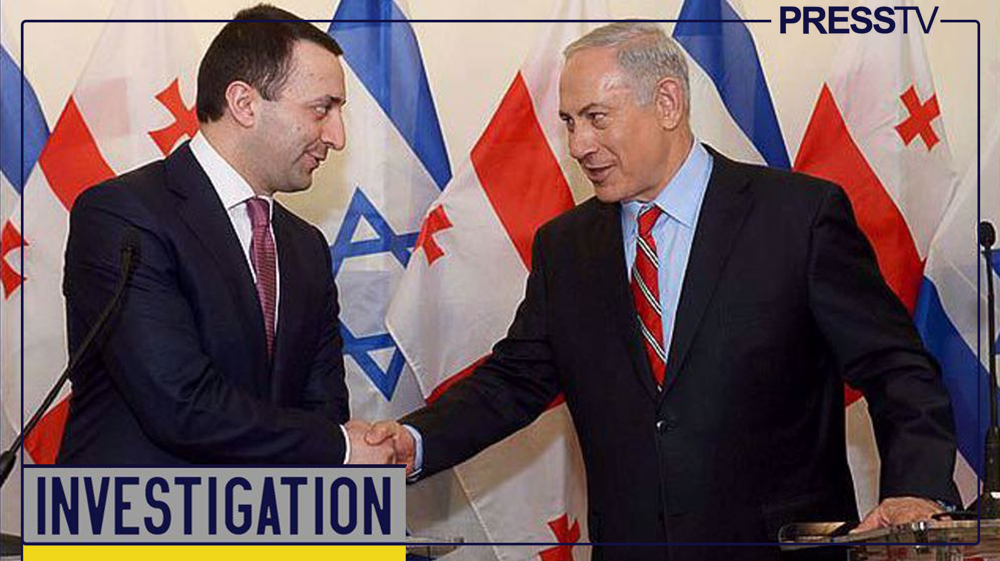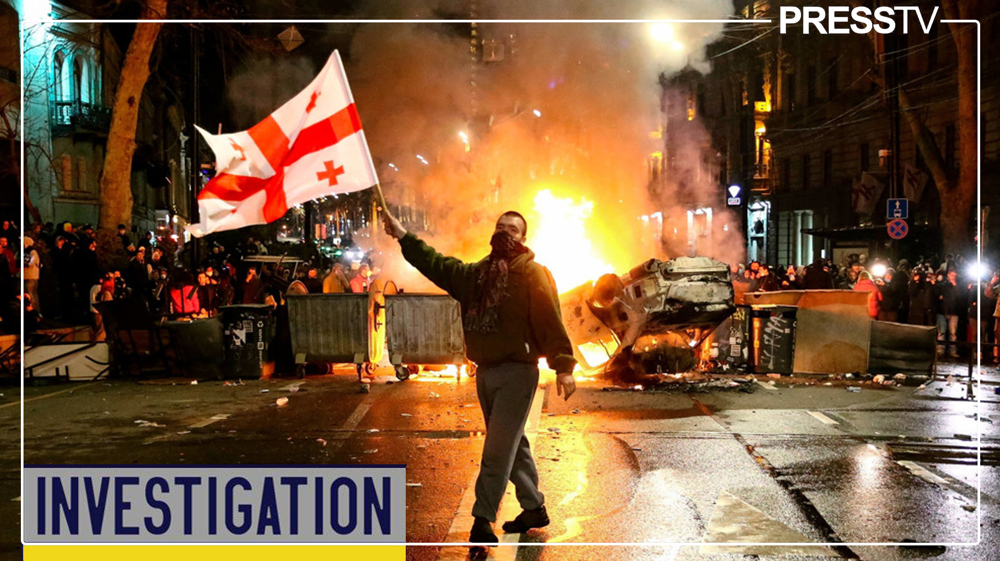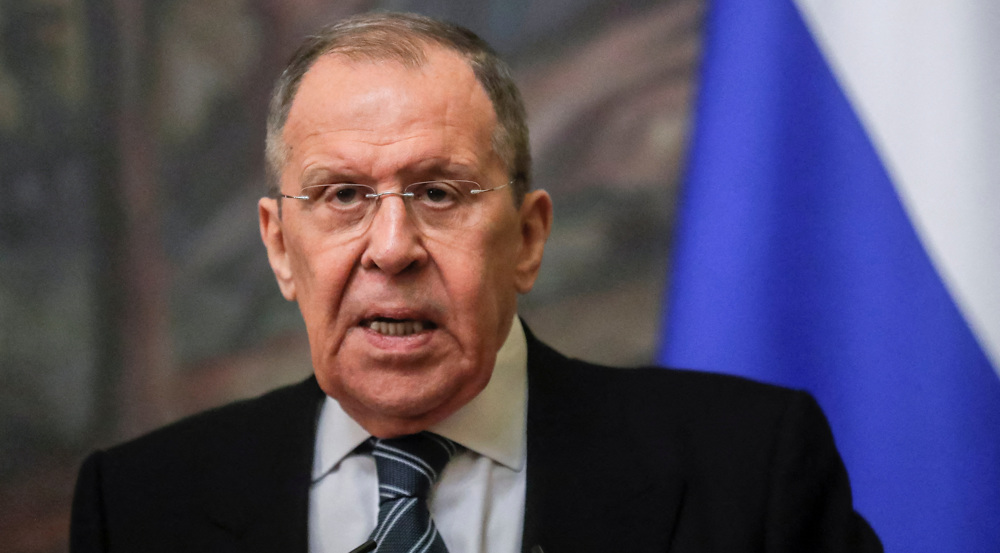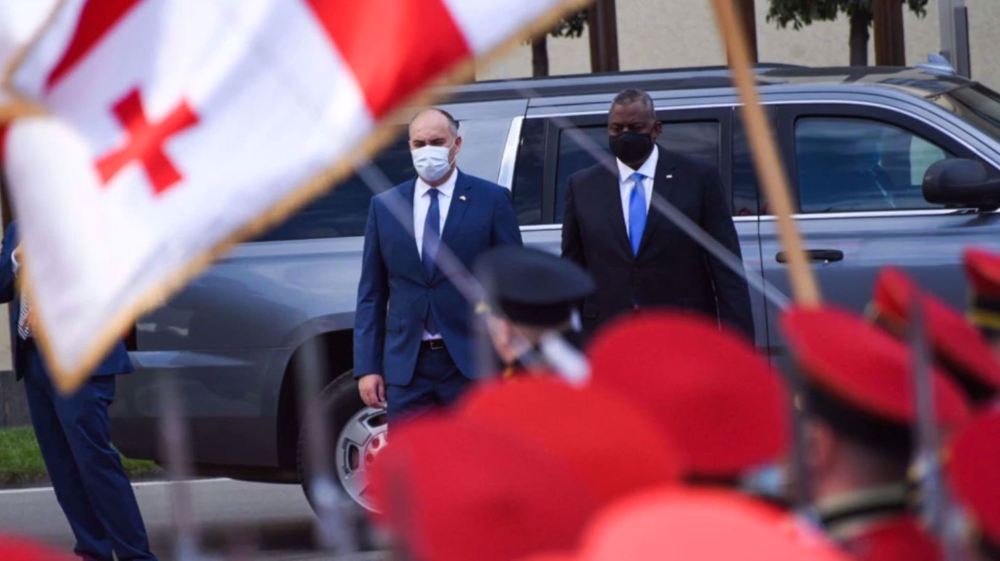The curious case of ‘special relationship’ between Israel and Georgia
By Kit Klarenberg
On May 3, the Israeli foreign minister welcomed his Georgian counterpart Ilia Darchiashvili to Tel Aviv. It was the latest high-profile example of the pair’s budding ‘bromance’.
Darchiashvili had a week earlier toasted the Zionist regime’s 75th birthday, expressing his wish that the “enduring bond of friendship” between the two sides “will grow even deeper with each passing year.”
This flurry of activity represented a particularly public demonstration of the little acknowledged or recognized “special relationship” between Georgia and Israel, which has endured and intensified since the former gained independence from the Soviet Union in December 1991.
The reasons for this alliance aren’t immediately obvious. Yet, the Zionist entity’s geopolitical interest in the Caucasus is immense, and Tbilisi provides an ideal staging ground for its fantasies of regional domination.
Deciphering the occupying Israeli regime’s fascination with Georgia provides a key to comprehending Tel Aviv’s other lesser-known international relationships.
Follow the money trail
As of 2021, the Israeli regime had diplomatic ties with 168 countries. In almost every instance, these relations are founded on military and security treaties, with weaponry, surveillance technology, and battle tactics flowing from Tel Aviv as a result.
It is not for nothing that the regime is a permanent fixture in lists of the world’s top arms exporters.
Georgia is no exception. Following independence, Israel moved quickly to sink its military claws into the country, which is strategically situated at the crossroads of Europe and Asia, with shipments of drones, anti-tank missiles, mortars, Soviet-made equipment, armored vehicles, and associated ammunition flowing in increasing volumes every year. It also trained the Georgian army.
Underlining Tbilisi’s significance to Israel, this was all provided despite high-level concerns in Tel Aviv that neighboring Russia could retaliate by sending advanced weapons systems to its regional allies Iran and Syria, which are sworn enemies of the Zionist entity.
In August 2008, the shipments were halted days after war broke out between Georgia and Russia, which began when the former, with US encouragement, started striking civilian positions in its breakaway regions of Abkhazia and South Ossetia.
The pause was only temporary though, and come January the next year, Israel was helping repair the enormous damage inflicted on Tbilisi by the five-day conflict, Tel Aviv-based investors reaping over a third of all reconstruction contracts handed out by the government.
Of course, such assistance was not provided due to altruism. As with weapons sales, international aid provided by Tel Aviv very handily buys the silence, if not outright support, of the Zionist entity’s slow-motion genocide of the Palestinian people on the part of beneficiary states.
This purpose was starkly illustrated in November 2012, during Operation Pillar of Defense, when Israeli occupation forces brutally attacked the besieged Gaza Strip, killing over 100 civilians and wounding up to 1,000 more.
While the murderous assault overwhelmingly elicited international outcry and condemnation, a large demonstration in support of Tel Aviv’s dastardly actions was held in the center of Tbilisi.
The defense component of Georgia’s dark handshake with Israel is very much alive and well in the present day. In 2018, Tbilisi signed a high-level deal with notorious Zionist weapons manufacturer Elbit Systems, to upgrade its airforce.
Two-and-a-half years later, the Georgian Ministry of Defense entered into an agreement with Israeli military tech firm Rafael to modernize the country’s air defense systems.
‘Periphery alliances’
Israel has another prime motivation for arming Georgia to the teeth - namely, the encirclement of Iran, which borders Tbilisi’s two neighboring countries, Armenia and Azerbaijan.
Yerevan and Baku are bitter enemies, having effectively been at war on and off since 1988. At the time of writing this piece, the latter’s blockade of Artsakh has entered its sixth month.
All along, the breakaway republic’s 120,000-strong Armenian population has been deprived of basic essentials, including life-saving medication.
As a major regional power, with long-running ties of every conceivable kind with both Armenia and Azerbaijan, Iran has an obvious interest in resolving their long-simmering grievance once and for all, via peaceful means.
Yet, Tehran’s ability to do so was significantly curtailed by US and EU sanctions. When they were lifted in 2016, the Islamic Republic undertook to help end hostilities between the two neighbors. The reinstatement of sanctions two years later significantly sabotaged reconciliation efforts.
Tel Aviv was no doubt elated when the Trump administration reinstituted sanctions, for it specifically seeks to damage ties between Tehran and Baku for its own malign purposes.
In the words of former Israeli prime minister and president Shimon Perez, Zionists consider Azerbaijan “key in limiting Iran’s influence in the Greater Middle East.”
Unlikely bedfellows
Israel and Azerbaijan are even more unlikely bedfellows than Tel Aviv and Tbilisi. Baku’s population is almost entirely Muslim, and majority Shia, therefore not well disposed towards Zionism. However, as the Carnegie Endowment for Peace has noted, “countering Iran through the formation of the periphery alliances…is perfectly built into Israeli strategic planning.”
This is achieved by ensuring Armenia and Azerbaijan remain combative and cementing a position as a vital source of weaponry for the latter in the dispute.
Zionist-made armaments proved pivotal in the brief April 2016 war between Armenia and Azerbaijan, with the latter using suicide drones and anti-tank missiles made in Tel Aviv to decisively repel its opponent’s advance.
Subsequently, Baku was reportedly so impressed with this performance that it wished to purchase a version of Israel’s ‘Iron Dome’, the sale of which was completed in May 2021.
Tbilisi has historically had complicated relations with Yerevan, but never less than close and cordial ties with Baku. Former Georgian President Mikheil Saakashvili once boldly declared, “Whoever opposes Azerbaijan or Georgia is an enemy of both our countries.”
By exacerbating the dispute between Armenia and Azerbaijan, Israel pushes Azerbaijan and Georgia closer together, and Armenia and Georgia further apart - and the resultantly heightened risk of conflict between these states reinforces Tel Aviv’s utility and necessity as a security provider.
In the process, the Zionist entity cultivates potential allies and accomplices in the event it is sufficiently foolhardy as to attempt to fulfill the fantasy of successive administrations in Tel Aviv – striking at the soil of the Islamic Republic.
Georgians would be wise to look beyond the diplomatic niceties and beaming smiles of their foreign minister, and ask what mephitic objectives are served by their country’s eager embrace of the Israeli regime, and its strategy of ethnically cleansing the indigenous Palestinian people.
Kit Klarenberg is an investigative journalist exploring the role of intelligence services in shaping politics and perceptions.
(The views expressed in this article do not necessarily reflect those of Press TV.)
Leader: US-Israeli military aggression in region defeated by Iranian youth
VIDEO | Yemenis will play critical role in restoring Islam to greatness: Yemeni leader
US cannot turn Venezuela into a colony and steal its natural resources: Maduro
Israeli forces kill Palestinian man in Gaza; settler violence intensifies in West Bank
Israeli strike injures UN peacekeeper in southern Lebanon
N. Korea, Russia bound in ‘blood of war’: Kim tells Putin in New Year note
VIDEO | Radiopharmaceuticals reshape cancer treatment in Iran
VIDEO | New York declares state of emergency ahead of winter snow storm














 This makes it easy to access the Press TV website
This makes it easy to access the Press TV website